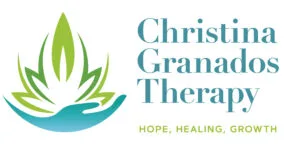
Understanding Trauma and PTSD
Trauma and PTSD are often used interchangeably but each represent the distinct physiological response to life altering events. We will explore the differences between trauma, traumatic events, and PTSD.
Defining Trauma
At the core, trauma is the emotional and physiological response resulting from distressing experiences that are emotionally disturbing, highly stressful, or life-threatening. Trauma is a normal and natural response to a highly disturbing experience. The emotional and physiological response to the experience will vary based on the individual.
Types of traumatic experiences
Although many think of traumatic experiences as war, natural disasters, or witnessing or experiencing a violent act, there are other experiences that may impact overall emotional and physiological well-being.
- Childhood Trauma – physical abuse, sexual abuse, and neglect experienced as a child.
- Attachment Trauma – disruption of bonding between a child and caregiver
- Vicarious Trauma – Service providers and first responders who are exposed to trauma
- Intimate Partner Violence – Abuse by a partner to his or her partner
- Sexual Trauma – Unwanted exposure or non-consensual sexual act
- Medical Trauma – Life-threatening medical procedures that cause emotional and physical distress
- Divorce – Loss of a significant relationship
- Unexpected and Sudden Death of Loved One
- Loss of Job – Yes, this too can be traumatic given the financial impact on individual and family
Acute Stress Disorder
Following a traumatic experience, some individuals may develop symptoms similar to PTSD but will diminish often diminish within a few days to a month. If symptoms persist longer, it can develop into PTSD.
Defining PTSD
Post-Traumatic Stress Disorder (PTSD) is psychological condition that can develop after exposure to a traumatic experience. PTSD is characterized by a range of symptoms that can significantly impact a person’s daily life, emotions, thoughts and behaviors.
Symptoms of PTSD
Symptoms of PTSD may be mild to chronic and include flashbacks, nightmares, and severe anxiety, as well as uncontrollable thoughts about the event, sleep issues, and avoidance of reminders of the event. It is important to note that not everyone who experiences trauma will develop all of these symptoms.
Treatment for Trauma & PTSD
The good news is, there is help if you have been struggling with trauma and PTSD. Eye Movement and Desensitization and Reprocessing (EMDR) and Hypnotherapy are powerful treatments to access the source of distress and effectively treat the symptoms and underlying source of PTSD.
Signs of unhealed Trauma and PTSD
Learn more about signs of unhealed trauma here.
What’s next?
If you are struggling with the symptoms of trauma and PTSD, there is hope. Take the first step to healing by submitting a request for a new client appointment.

